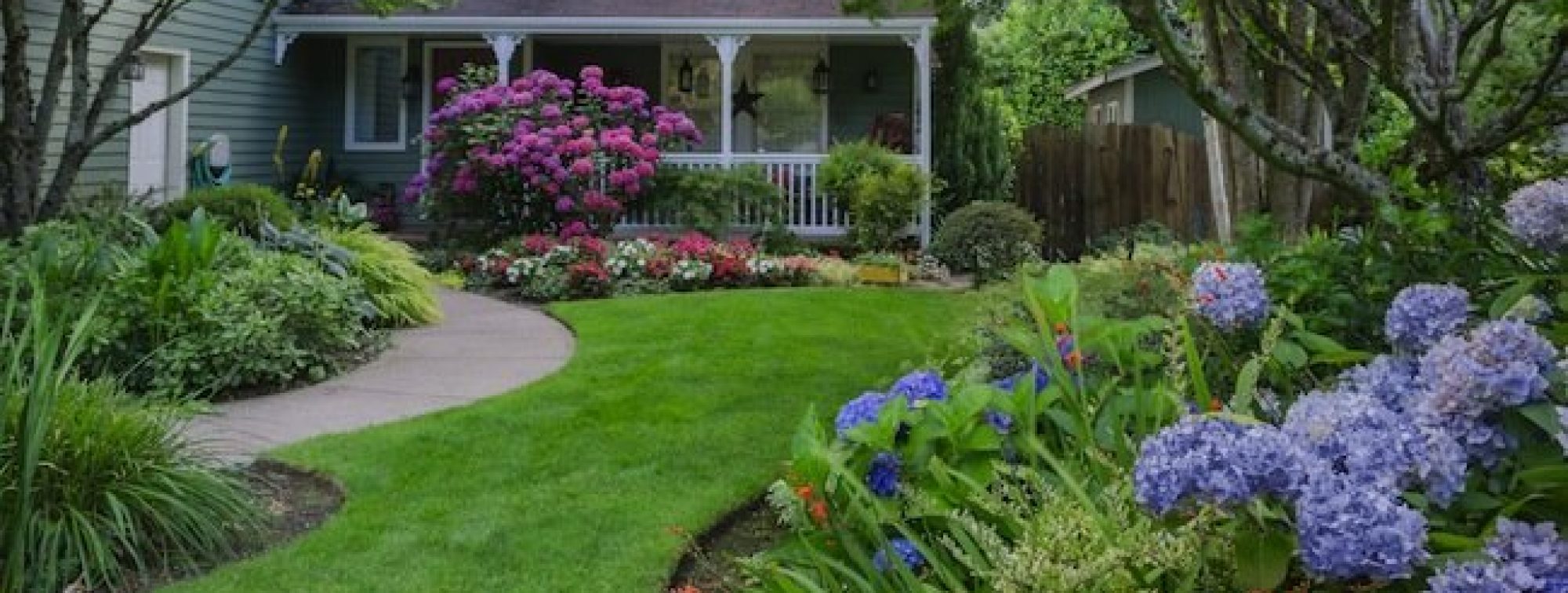Yes, it’s true; thinking about digging outside in the dirt and watching little seeds grow seems like a long process. And of course, it involves thinking about investing money and resources into something that may never grow. Still, it’s important to learn the best way to grow your own garden. That’s what the tips below are for.
Combining different selections of plants in a garden area holds the interest and adds to the enjoyment of the viewer. Merge contrasting plants to craft interesting combinations. Add big leaf plants with fine leaf plants and combine them with plants different in texture and color to create the most eye catching and interesting landscape garden.
Select perennials to reduce the amount of care your garden requires. Plants that return year after year usually require only a modicum of weeding and pruning. Edible perennials, such as asparagus, rhubarb, and sorrel, can provide an excellent salad addition for your household without causing too much work for you.
Use a mixture of vinegar, rubbing alcohol, and water to get rid of salt deposits. If you are having a problem of salt buildup on your clay pots, mix equal parts white vinegar, rubbing alcohol and water in a spray bottle. Spray on the deposits and they will wash away with ease. Make sure to let the pots dry thoroughly before use.
Wait for the right moment if you plan on dividing a plant. Leave perhaps two years to grow and divide it at the end of the season when it looks at its best. If your plant shows signs of diseases or has areas with fewer leaves and flowers than others, it is too late.
Don’t forget to fertilize your garden! Water isn’t enough when it comes to growing delicious, healthy vegetables. Choose the fertilizer that you best like. Some people prefer manure, while others can’t get around the thought of it. There are many fertilizer options available at your local gardening store, so there is certainly, a right one for you.
You can dry herbs by putting them in your car. You can neatly arrange them on a sheet of newspaper in a single layer. Then close the doors and windows and let it air dry. The warmth in the car will dry the herbs quickly. The herbs themselves will create a very nice aroma.
If your tomato plants have long branches that are not flowering or producing fruit, go ahead and pinch them off. It won’t hurt the plant, but will actually help. Pruning back the branches that are not producing fruit, allows the plant to focus its energy and nutrients on producing larger and more flavorful fruit.
Make sure to pick the right seeds for your location and zone. Certain crops grow better in certain locations. Seed packets usually have information regarding USDA zones. Information regarding USDA Plant Hardiness Zones is also available online. A good example of this is growing oranges in warmer climates and apples in cooler climates.
If your favorite flower pot or garden container has a hole or crack where dirt is leaking through, try lining that area inside the pot with a coffee filter. It works great to hold dirt in and keep your walkways and container gardens neat and clean. Try them out on hanging baskets as well!
A helpful solution for getting rid of a few slugs in your garden is to set out a container of beer. Just take a small plastic cup or container (plastic margarine bowl works great) and tuck it down into your garden beds near the area where the slugs are known to appear. Be sure the lip of the dish is level to the ground and then fill it with beer. The beer attracts the slugs into the dish where they will drown. You will have to dispose of the slugs and reset the beer “trap” every couple days, but your slugs will disappear.
When kneeling to do your gardening you need to make sure that you protect your knees from rocks and sticks that may be on the ground. Kneeling down on a rock could cause serious injury to your kneecap. Getting a knee pad is a simple and easy way to help protect your knees and increase your overall comfort while gardening.
Mower
You should check your gardening tools on a regular basis to make sure that they are still in good condition. Sheers, pruners and lawn mower blades all become dull after many uses. You can easily sharpen the blades yourself or have a professional sharpen them. By sharpening the blades you will not have to replace the tools altogether.
Start your own compost pile. It works better and is cheaper than commercial fertilizers. Your compost pile should be located in an area that is away from direct sunlight and has good drainage. You can speed up the decomposition process by chopping the items into smaller pieces with a shovel, shredder or lawn mower.
Edge your lawns and flowerbeds. Edging your lawn and flowerbeds will give them a tidy look, and it also serves as a mowing path. Run the wheels of your mower right on top of the brick or stone. The barrier is also helpful for preventing quick growing grass seed from making its way into your flowerbeds.

